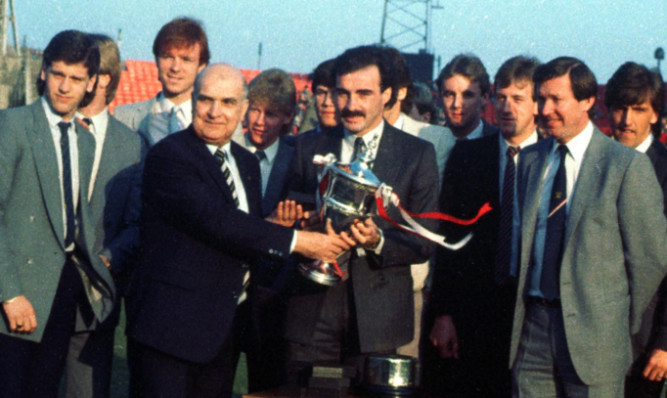The Scottish Premiership needs to be won by a club outwith Parkhead soon or the game might wither and die of serial boredom.
In the 30 years since Aberdeen last won the top division in 1984/85 season, the top title has ended up in one of two Glasgow trophy cabinets every season, the other being at Ibrox.
That is damaging and unhealthy for the game and is evidence of absence of ambition from other clubs.
Indeed, since the very first top league in 1890/91 season, only 19 titles have gone to teams other than Celtic or Rangers, with Dumbarton and the Ibrox club sharing one.
So, should radical changes be made to allow others a whiff of winning the top prize?
Is it time to return to sharing some of the gate income along with a fairer distribution of television money?
Should clubs pool income from merchandise sales?
Can a way be found to work a salary cap and even some form of draft system like the National Football League in America, where the world’s biggest capitalist country embraces a form of sporting socialism?
Is it time to return to a bigger league with our clubs meeting just twice a season?
Celtic would have been around £22 million richer had they beaten Malmo and made the Champions League group stages.
That would have been great news for them but grim news for every other Premiership club.
The Hoops already orbit an alternative football universe from the rest of Scotland’s top clubs.
Any slim chance of a serious challenge to Parkhead title domination would have been further reduced with such a huge European cash bounty.
Their financial muscle has already plundered Dundee United of three of its best players in Stuart Armstrong, Gary Mackay-Steven and Nadir Ciftci, as well as luring Hibs’ top star, Scott Allan, to the east end of Glasgow.
Previously, only Rangers could match Celtic financially but their future is unpredictable.
No other Scottish club can compete with Celtic’s resources over a lengthy league campaign.
Unlike other businesses, individual football clubs require each other to do reasonably well to maintain competition.
Clubs now need to look beyond narrow self-interest and share financial resources more equally.
That might just ensure the top prize can be won by more than just the very wealthy.
Celtic outgrew our domestic game long ago, but their board’s long-held ambition of playing in England’s cash rich Premier league is unlikely to happen.
Therefore, they are stuck in Scotland for the foreseeable future and will of course be reluctant to change the status quo; the other clubs must therefore seek a remedy to end this desperate domination.
I have long thought that Celtic’s departure would have benefited both their ambitions and also the rest of the Scottish game.
Aberdeen, Hearts, Hibs and the Dundee duo are bigger than others but not sufficiently to permanently dominate the league.
In our current one-horse race the other mounts are eager enough out of the stalls but have neither the stamina nor strength to test the thoroughbred to the line in the title race.
